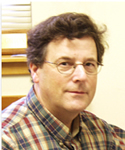AEM:Members/Pierce
<owwmenu font="calibri, helvetica, sans-serif" bold="1" color="white" bgcolor="goldenrod" hovercolor="white" topFontSize="14" fontSize="12" pagewidth="830" image="AEMBanner.jpg" lab="">
Home=#, Home=AEM, About=AEM:About Members=#, Members=AEM:Members, Chin= AEM:Members/Chin, Crow= AEM:Members/Crow, Gilbert= AEM:Members/Gilbert, Lopanik= AEM:Members/Lopanik, Pierce= AEM:Members/Pierce Projects=#, Projects=AEM:Projects Events=#, Events=AEM:Events, Calendar=AEM:Calendar Contact=#, Contact=AEM:Contact </owwmenu>
<startFeed/>
Dr. George Pierce

Biologically Based Systems for the Treatment of Hazardous Wastes In general, this research has been directed towards the biological treatment of industrial wastes and residues generated during the production of industrial organic chemicals. This work has involved both site remediation (site clean-up) and the development of biologically based systems for the treatment of process related waste (treatment of wastes generated by current chemical processes). Current activities in the laboratory are centered on understanding the fundamental nature of individual enzymes and immobilized enzymes used to treat process related wastes. The information developed will be used to rationally design catalyst types, which have improved and enhanced properties with respect to long-term stability and ruggedness. In addition, catalyst improvement and optimization experiments are directed towards understanding how immobilization may improve enzyme performance.
Use of microbial-based systems for the production of industrial and specialty chemicals Increasingly, both greater interest and greater pressure has arisen for using microbial based systems (derived either through the use of single step enzyme mediated reactions or through the use of pathway engineering of complete synthesis routes) in processes to produce chemicals for industry, health care, etc., that are more pure, more active, but which generate far less pollution than conventional chemical synthesis, yet are still economical. Interests in the laboratory are focused primarily on using catalysts prepared using either the whole microorganism or enzyme(s) isolated from microbial cells. Current interest in the lab centers on fundamental applied enzymology studies directed towards understanding how these enzymes may be best employed to prepare industrial and specialty chemicals.
Bacterial Sensing: Chemotaxis, Quorum sensing, and Attachment For over twenty years now, the various research projects have contained a common thread which has involved understanding how microbial attachment influences microbial activity in natural and man-made ecosystems. In the area of microbial degradation, this interest has centered upon developing an understanding of chemotaxis, microbial attachment, and the ability to develop and sustain very high densities of microbial communities that also maintain very high degradation rates. Early on these studies were predominantly physiological studies. Today, the physiological investigations are supported by molecular and genetic tools that permit not only a greater understanding of the process, but also permit us to investigate selected members of this community. By increasing our understanding of how the processes of biodegradation occur in natural systems, the ability to rationally and reliably use biodegradation processes will improve. By focusing on the fundamental mechanisms of microbial sensing and attachment, we expect to be able to define these mechanisms in terms that allow us to compare different systems (from biodegradation to microbial attachment on medical devices, etc.) where there is a strong relationship between microbial attachment and activity/effects. The identification of fundament mechanisms of attachment will enable programs for the rational control of these processes.
Lab Members
- Cui Wang, PhD Candidate,
- Katie Swenson, PhD Candidate,
- Kayla Bean, PhD Candidate,
- Dr. Shelby Jones-Dozier, PostDoc
- Dr. Trudy Tucker, PostDoc
Representative Publications
Contact Information
- Office: 423 Kell Hall
- Office Phone: 404.413.5315
- Laboratory: 600 Kell Hall
- Lab Phone: 404.413.5356
- Email: biogep@langate.gsu.edu